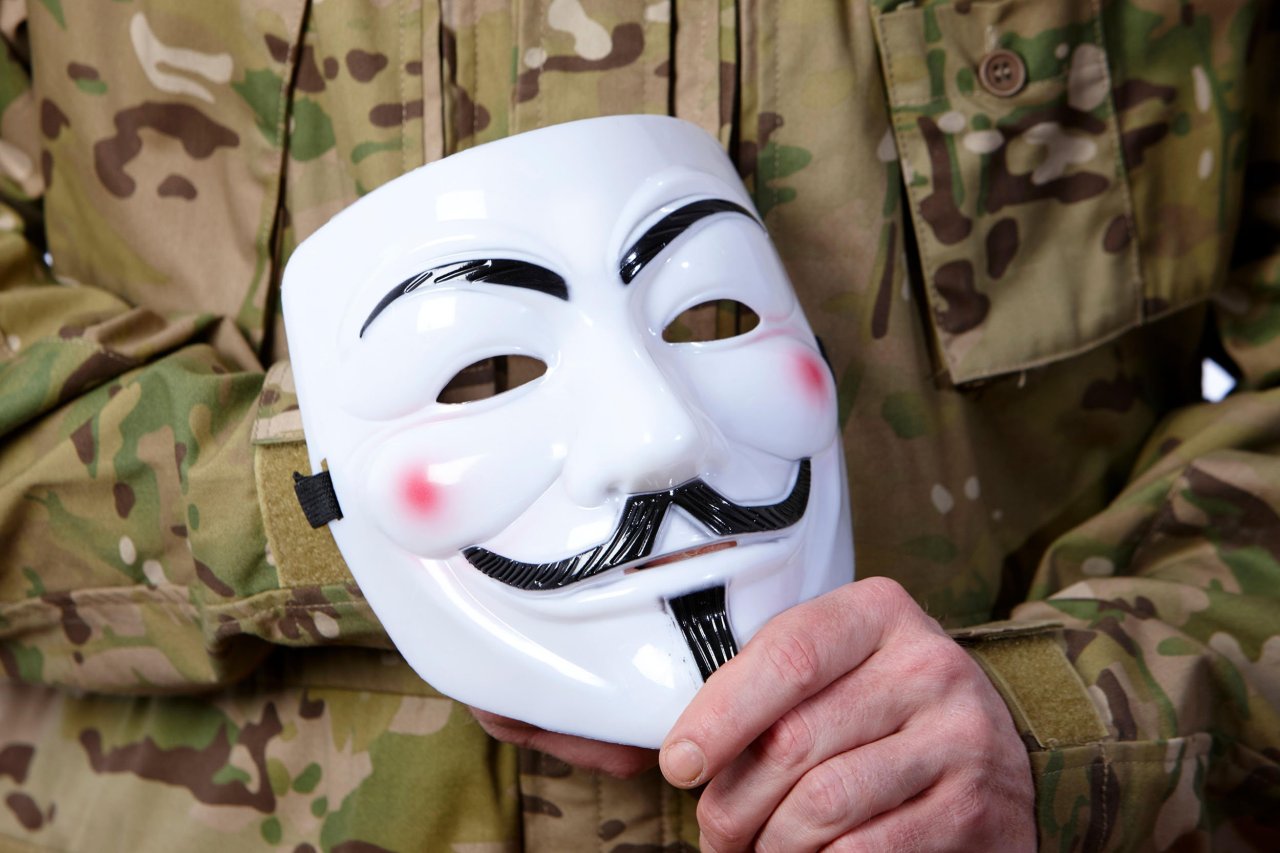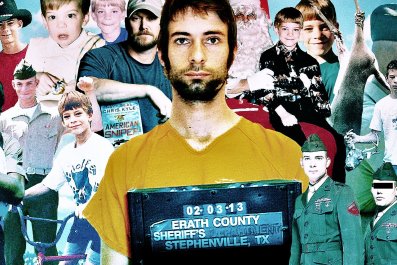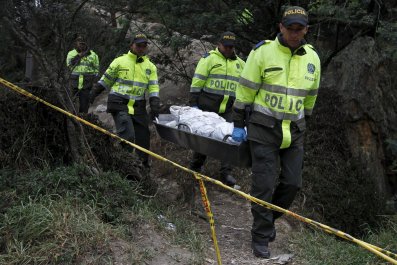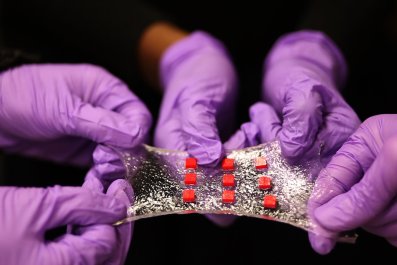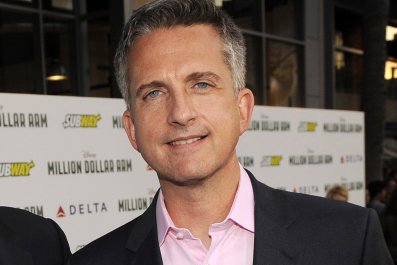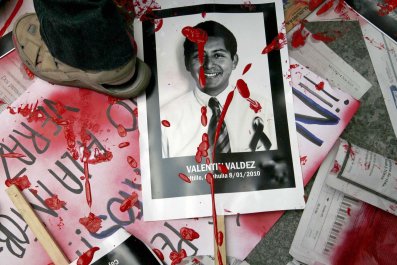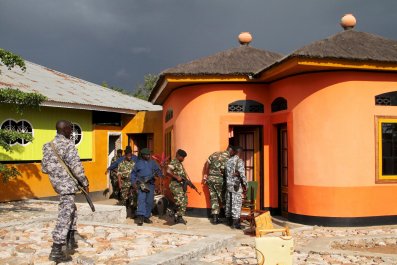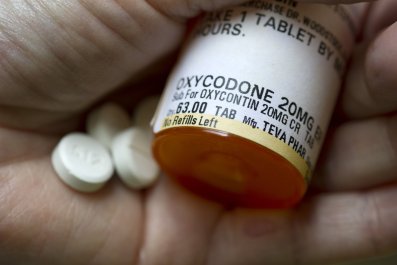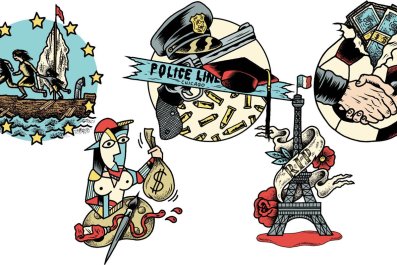Buying a gun as a response to terrorist attacks is prepping for last century's war. If you want to be a modern anti-terrorist vigilante, get a laptop and help Anonymous.
Seriously, we ought to pass a new constitutional amendment guaranteeing the right to bear technology.
You know all these programs like Code.org meant to get people to learn code and retrain themselves for the future? It's time to glamour them up with a patriotic call to arms. Hacking is the best way to protect America. When thousands of beefy guys in crew cuts and fatigues start huddling over keyboards in dive bars and working to gum up ISIS with denial of service attacks, the world will be a safer place.
Sound counterintuitive? Wimpy? Geekier than an episode of The Big Bang Theory? Well, as we've been told over and over, the most dangerous weapons of the Islamic State militant group aren't guns and bombs. The real threat is ISIS's use of technology: social media, YouTube, encrypted texting apps, recruiting websites. The bastards are better at using digital media to spread a brand than Procter & Gamble.
ISIS relies on this digital branding to inject its poison into residents of other countries, getting them to buy their own guns and bombs, attack near home and die for the cause. That's what happened in both Paris and San Bernardino, California, and will probably happen in other places. A lot of people want to protect themselves by returning fire after the attackers start shooting. A better plan is to muck up ISIS's ability to recruit so no one attacks in the first place.
This is what Anonymous announced it would do when it declared war on ISIS in November. Anonymous is the hacker group that posts videos that look like Anderson Cooper is on CNN wearing a Guy Fawkes mask and talking like Darth Vader. As Glenn Greenwald, the journalist who aided Edward Snowden, described the group: "Anonymous is not a shadowy organization but a loosely knit collection of activists all over the globe." It may sound scary, but its intentions are generally good.
An Anonymous representative said the group's "current mission is to exterminate all terrorism content on the Web, making it hard for terrorists to recruit online." Denial of service attacks—overwhelming a website so no one can get on it—is one tactic. The group also says it has identified and helped disable thousands of ISIS-run Twitter accounts. If it ever hacks into an ISIS database of names, it could release a list to the public or to officials. Anonymous is even encouraging non-coders to get involved, like when it recently prodded Internet pranksters to mock ISIS for a day. (The so-called caliphate somehow survived a vicious onslaught of jokes about romantic attachments to goats.)
Can Anonymous take down ISIS? Experts express doubt. But if Anonymous's actions inspire millions of hacktivists globally, all dedicated to interrupting digital extremist activity and recruitment, then we might get somewhere.
Here's the other thing: The gravest terrorist threats don't involve guns. Terrible as it was to learn about San Bernardino and Paris, guns can't kill vast numbers of people. Forty-five Americans have died in such attacks since 9/11. Something like 80,000 a year die from drinking too much alcohol. Another 35,000 kill themselves each year. If you own a gun, the odds are greater that you'll shoot yourself rather than get shot at by anybody else.
The ultimate threat is if one of these groups gets hold of a nuke. No citizen with a gun is going to stop that. A citizen hacker at least has a chance of intercepting some telling communication or finding secret plans.
This is a profound change since the Second Amendment was written. Back in the 1780s, a few guys with guns actually might have been able to keep an oppressive government off their backs—which was the whole point of ensuring the right to bear arms. Now, of course, good luck wielding a gun when the F-4s come screaming in.
However, in this digital era, a lone person with a laptop can effectively fight a government. Snowden is Exhibit A. Some of Anonymous's actions—like during the Arab Spring in Egypt, when the government disabled Internet and wireless networks, and Anonymous helped get protesters back online—show the potential power of the laptop. At this point, if a smart oppressor wanted to control us, it would come for our laptops, not our guns.
Anonymous's declaration of "war" against Donald Trump could change attitudes about guns versus laptops. No one would ever want to see a repeat of the shootings of candidates George Wallace in 1972 or Robert Kennedy in 1968. If Anonymous succeeds in electronically roughing up a candidate, a new equation might be written. If the pen used to be mightier than the sword, now the keystroke is mightier than the automatic weapon.
Still, a nerd brandishing a laptop isn't quite the image we Americans have of ourselves. Gun people and hacking people are from two different planets. According to a Pew Research survey, adults in gun-owning households are more likely, compared with the average American, to think of themselves as "outdoor" people and to say "honor and duty are my core values." This doesn't exactly describe the typical hacker. Gun owners tend to be Republican; Silicon Valley is overwhelmingly Democrat.
We need this dynamic to get flipped on its head. We need the gunslingers and Fox News commentators to rally around Anonymous and the hacker culture and help make it tough and cool and red, white and blue. ISIS is making it clear that the 21st-century heroes will have JavaScript flying from their fingertips.
You know how it goes: The only thing that can stop a bad guy with a laptop is a good guy with a laptop.



